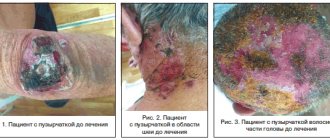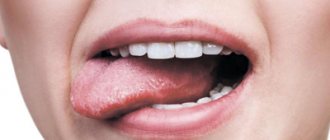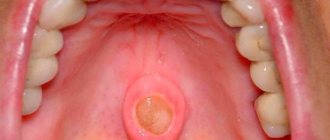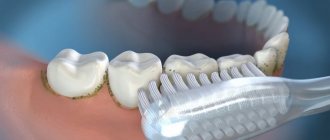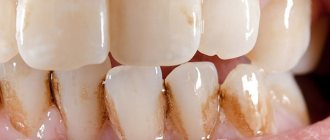sour taste in mouth
heartburn
gastritis
If a person, without consuming any food or drink, feels a dubious taste in his mouth other than a neutral one, then this, with a 90% probability, indicates the development of abnormalities in the digestive system. Depending on the nature of the pathological changes, the taste can be sour, sweet or bitter. If this symptom occurs, immediate consultation with a gastroenterologist is recommended, and in some cases, consultation with an endocrinologist or hepatologist may be required.
What is dysgeusia and what causes its occurrence?
Dysgeusia (distortion of taste) is a disease in which the sense of taste is partially or completely absent. There are many reasons for this disease. Using the sense of taste, we can determine the taste of food and other elements entering the body. The sense organs that are responsible for this function are called taste buds.
They are located on the surface of the tongue. Under some conditions, a person may lose the ability to taste foods. Experts distinguish four main types of such disorders, namely pargeusia, dysgeusia, ageusia or hypogeusia. The complete absence of all taste sensations is called ageusia, partial weakening is called hypogeusia . Sometimes, a person constantly feels an unpleasant taste, regardless of the product he consumes. Distorted taste, which has a metallic taste, is a sign of dysgeusia.
Causes
The main reason for the appearance of a sour taste in the mouth is a violation of the acid-forming function of the stomach. This condition develops with hyperacid gastritis. A similar phenomenon is typical for gastritis with high acidity, as well as for peptic ulcers of the stomach and duodenum. Also, a sour taste in the mouth can be observed with gastroesophageal reflux, when gastric contents reflux into the esophagus due to weakness of the gastroesophageal sphincter. The occurrence of a bitter taste in the mouth may be associated with the following factors:
- Violation of the process of bile discharge and cholelithiasis.
- All types of hepatitis, including viral and alcoholic type.
- Cirrhosis of the liver.
- Oncology of the liver or gallbladder.
The most common cause of a sweetish taste in the mouth is poor nutrition, when a person is prone to chronic overeating, and also when his diet is dominated by simple carbohydrates and fatty foods. Other potential causes of a sweet taste in the mouth include:
- Diabetes. If a characteristic sweetish taste in the mouth occurs spontaneously, regardless of food intake, then this may indicate developing diabetes mellitus. In addition to this symptom, additional concerns include dry mouth, intense thirst, increased appetite, and an increase in the daily volume of urine excreted.
- Ketoacidosis. With previously diagnosed diabetes mellitus, a complication such as ketoacidosis may develop. In addition to a sweetish taste in the mouth, this condition is accompanied by severe malaise, confusion, even entering a coma. After a sweet taste appears in the mouth, with ketoacidosis a characteristic smell of acetone appears from the mouth.
- Pregnancy. If a woman of reproductive age who is regularly sexually active has a sweet taste in her mouth, this may indicate pregnancy, since this condition is characterized by atypical taste sensations, as well as atypical taste preferences.
- Oral diseases. With pathologies such as deep caries, stomatitis, gingivitis, chronic bleeding of the gums develops, which leads to the appearance of a sweetish taste in the mouth.
A less common cause of this symptom is traumatic brain injury, when the nuclei of the cranial nerves, whose role in the formation of taste sensations is key, were involved in the traumatic process. With this type of injury, a person ceases to feel the entire taste palette.
The appearance of a sour taste in the mouth after eating or other atypical tastes does not differ significantly between men and women. In addition, an atypical taste in the mouth may be accompanied by an unpleasant odor, which creates not only physical, but primarily psychological discomfort, and negatively affects interaction in society and interpersonal relationships.
Taste qualities with dysgeusia are distorted
Based on the above, taste qualities in dysgeusia are not completely absent, but are distorted. Some experts call dysgeusia (taste distortion) any taste disorder, while others use this term to mean a certain type of taste disorder. That is, dysgeusia is any change in taste, including a strange taste. No one is immune from the occurrence of taste deviations. They can occur at any age. People with dysgeusia constantly experience an unpleasant, salty, rancid or metallic taste in their mouth.
Even ice cream can have a salty or metallic taste. There are cases when people also experience changes in smell. Taste buds and receptors responsible for smell are interconnected, so this phenomenon is quite common.
One of the most common symptoms of dysgeusia is the presence of a metallic taste in the mouth.
Diagnosis of taste disorders in children
If you suspect a taste disorder, you should contact a specialist. Parents should be alerted by the refusal of familiar and favorite foods, and at a more conscious age, by the child’s complaints. Also, the baby may begin to eat things that are not intended for this (it should be noted that at a certain age children “put everything in their mouths” in order to explore the world around them, and this is absolutely normal).
Diagnosing taste disorders in preschool children is quite difficult, since children cannot always clearly describe their sensations. During the examination, the corresponding side of the tongue is moistened alternately with a sweet, sour and bitter solution using pipettes. After each session, rinse your mouth thoroughly. In infants, the doctor pays attention to the general motor and facial reaction. Children over two years old can most often consciously talk about their feelings. Source: E.V. Pavlovskaya Selective appetite in children // Issues of modern pediatrics / 2013/ Volume 12/ No. 6
Is taste distortion always associated with dysgeusia?
Distortion of taste can signal not only dysgeusia, but also other diseases. Often, after the disease is completely cured, the disturbance in taste disappears and everything returns to normal. If the symptom remains, the possibility of a chronic taste disorder should be considered.
Distortion of taste sensations occurs as a result of disruptions in the functioning of the receptors responsible for taste. Research has shown that dysgeusia may be caused by a decrease in the number of microvilli in taste receptor cells. It should be noted that with a decrease in the nucleus and cytoplasm of receptor cells, similar deviations occur.
Another important reason for the development of dysgeusia is the use of certain medications. These include certain diuretics, tetracycline, metronidazole, penicillamine, as well as anigestamines of the H1 series. Each drug has a different effect on taste receptors. However, the result is the same - a change and disturbance in taste.
Diagnostics
In order to determine the cause of sour taste in men , it is necessary to undergo a comprehensive examination, which will exclude or confirm certain diseases. Comprehensive diagnostics includes the following activities:
- esophagogastroduodenoscopy (most informative for diagnosing gastric ulcers ;
- gastric pH-metry;
- ultrasound examination of the abdominal organs, including the liver and gallbladder;
- ultrasound examination of the pancreas;
- biochemical blood test, including liver tests and assessment of pancreatic enzyme levels;
- general clinical blood test;
- assessing blood glucose levels;
- consultation with a neurologist, endocrinologist, gastroenterologist, hepatologist;
- analysis for glycosylated hemoglobin.
Chalazia cardia
Gastroesophageal reflux is the reflux of gastric juice into the esophagus.
The cardia is the gastric muscular valve that connects this organ to the esophagus.
Its dysfunction (chalasia) leads to the fact that digestive juices enter cavities not intended for them. Usually this is the esophagus.
As a result, a condition with symptoms reminiscent of gastroesophageal reflux occurs.
Unlike the mentioned disease, chalazia cardia develops as an independent disease. This disorder has nothing to do with gastritis.
Other causes of urine odor from the mouth
Protein diets, prolonged fasting, monotonous, unbalanced nutrition, drinking a small amount of liquid per day often lead to disruption of water-salt and electrolyte balance. If a large amount of protein food enters the body, the load on the kidneys and liver increases significantly.
Medicines, protein complexes, and nutritional supplements can also cause bad breath. Especially if pharmacological preparations, mineral and vitamin complexes contain nitrogen-containing substances, amino acids, and proteins.
Abuse of alcohol, drugs, and bad habits lead to irreversible consequences in the body and provoke the development of various systemic pathologies and functional disorders.
A constantly emanating uremic aroma indicates a violation of biochemical processes in our body. Therefore, in order to eliminate and neutralize the stench, it is important to establish the root cause of ammonia “amber”.
Stomach and duodenal ulcers
Typically, ulcers of the gastrointestinal tract are asymptomatic. It is very difficult to diagnose such diseases in a timely manner (that is, before the onset of severe consequences). However, during periods of exacerbation, ulcers can manifest themselves not only with characteristic pain, but also with other symptoms. One of them is a sour smell from the mouth.
What causes this phenomenon? Many diseases of the gastrointestinal tract entail disturbances in the intestinal microflora. It is the death of the beneficial microorganisms living there that provokes an unpleasant, sharp, sour odor from the mouth, which can be felt even when breathing.
Diaphragmatic hernia
The diaphragm, separating the chest and abdominal cavities, is equipped with a special opening. The esophagus passes through it. However, with a hernia of the diaphragm, the described hole becomes too wide. Because of this, the esophagus, normally partially located in the abdominal cavity, moves higher.
What are the consequences of such a violation? Due to the uncharacteristic bends of the esophagus, as well as its specific location, the likelihood of gastric juice entering this organ increases significantly. Well, we have already mentioned what this leads to when talking about gastroesophageal reflux and chalasia cardia.
Treatment
Drug therapy, regimen, course, and duration of treatment are selected individually in each specific case. The choice of treatment methods depends on the root cause, age, and general physiological condition of the person.
Patients may be prescribed:
- enzyme agents;
- symptomatic medications;
- immunomodulators;
- hepatoprotectors;
- antibacterial, antiparasitic complex drugs;
- diuretics, hormones;
- anti-inflammatory drugs.
If bad breath is caused by acute or chronic pathologies or diseases, much attention is paid to symptomatic therapy and complex treatment.
Aerosols that suppress the development of pathogenic flora and special antiseptic solutions will help:
- Stopagin. A complex drug with a pronounced antiparasitic and antibacterial effect. Prescribed for rinsing.
- Chlorhexidine. Has an aseptic, bactericidal effect. Used to treat pathologies of the urinary system.
- Hexoral. An effective remedy for the treatment of dental diseases.
If endocrine disorders are diagnosed, treatment therapy is carried out under the supervision of the attending physician. Drugs are prescribed to suppress the activity of the thyroid gland, normalize its functioning, and secretory activity. For thyrotoxicosis, radioactive iodine is used.
For renal diseases, drug therapy depends on the form and stage of the underlying disease. Diuretics, anti-inflammatory, and antibacterial agents with complex effects may be prescribed, the action of which is aimed at relieving the clinical symptoms of the disease.
If uremic stench is provoked by strict diets, prolonged fasting, unbalanced nutrition, the attending physician or nutritionist will adjust the diet and prescribe a special diet to normalize metabolic processes and water and electrolyte balance in the body.
Gastritis
Gastritis is increased acidity in the stomach.
The cause of a specific odor from the mouth may be increased acidity in the stomach, characteristic of gastritis.
Often this condition is accompanied by heartburn and other symptoms typical of digestive disorders. As for the sour smell itself, with gastritis it is not constantly felt from the mouth.
As a rule, a specific “smell” appears simultaneously with food belching and persists until the next session of eating or brushing your teeth.
Dental diseases
Gingivitis can cause bad breath.
Most often, the source of sour odor is problems directly in the oral cavity.
Dental diseases such as caries, gingivitis and periodontitis will almost certainly lead to the occurrence of this unpleasant phenomenon. Why does such a specific smell arise when problems with teeth and gums occur?
The fact is that inflammatory processes in the soft tissues around the teeth lead to the active proliferation of bacteria in the oral cavity. During their life, harmful microorganisms release many substances, most of which do not have the most pleasant odor.
Due to the specific location of the source of inflammation, a person suffering from problems with teeth and gums, as a rule, feels not only a sour smell from the mouth, but also a specific taste on the tongue.


